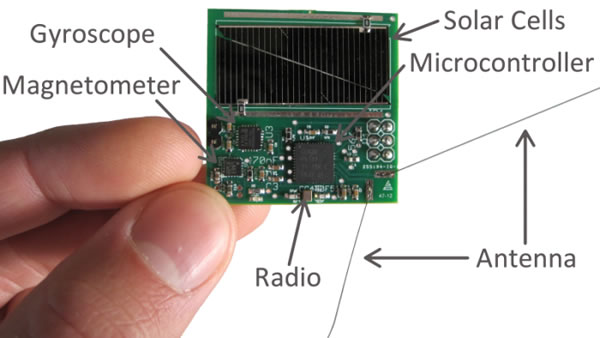British media claimed that scientists have announced that the smallest spacecraft launched in human history has successfully entered the near-Earth orbit and had contact with the ground system. According to the report of the British newspaper “Guardian†on July 28th, this microsatellite, known as the “elfâ€, is only 3.5 centimeters long and weighs 4 grams and is equipped with radio receivers, sensors, and calculators. The equipment is powered by the sun.
Although the nanosatellites known as "cube satellites" have already successfully entered space, the volume of such satellite systems is thousands of times that of the "elf" microsatellites and weighs more than 1 kilogram.


Scientists said that this latest development is an important prerequisite for a bold attempt to launch space probes on planets outside the solar system. This attempt was called the "breakthrough star shooting" program.
Avi Lob, the Harvard professor and chairman of the "Breakthrough Photographing" Program Advisory Committee, said: "This is a new era for miniature gram-class spacecraft."
Loeb added that the "Elves" microsatellite is also very cheap. He said: "Each cost is only a few tens of dollars."
Stephen Hawking and Russian entrepreneur Yuri Milner announced last year that the goal of the "Breakthrough Shooting Star" project is to develop a chip weighing only 1 gram and install it on a very light and light aircraft sail, passing 100 billion watts. The laser beam pushes it into space. Milner has invested US$100 million to finance the first five years of the program.
Loeb said: "The reason why weight must be reduced is that in order to get the aircraft to reach our nearest star in our lifetime, the spacecraft must fly at a fraction of the speed of light - about one-fifth of the speed of light."
Although the Elven microsatellite was previously mounted on the International Space Station, this is the first time that such a lightweight minisatellite can be successfully launched into space and communicated with the ground.
The "Elves" microsatellite project was led by Zach Manchester, a researcher who worked with Loeb at Harvard University. About 10 years ago, he began to work on research and development of miniature space vehicles. Since then, the project has become part of the "breakthrough star" plan.
Currently, two "elvish" microsatellites are tied next to two larger satellites (Latvian vinta satellites and Italian Max Valerian satellites). The two larger satellites were manufactured by the German company Brembo Orbital High-Tech Systems AG and launched in June.
The other four "Elves" microsatellites are still inside the Max Valle satellite and are planned to be released into space - but due to technical problems with the Italian satellite's communication, the plan is still pending.
Li2Co3 Power,Lithium Carbonate,Lithium Carbonate Power,Lithium Carbonate Uses
Shanghai Na Long Tech Co., Ltd , https://www.na-long.com